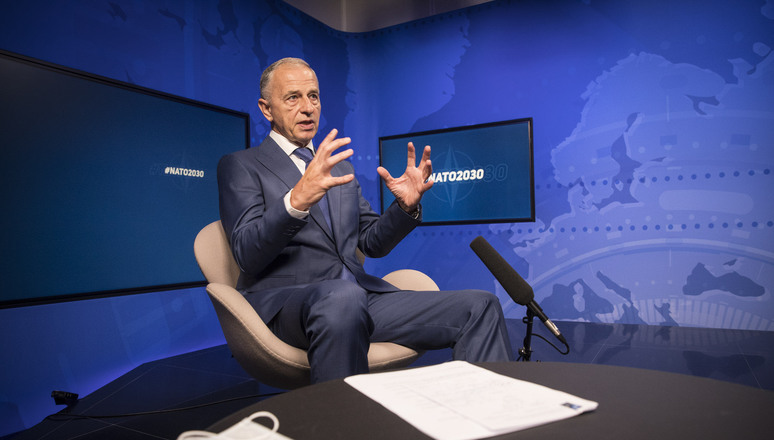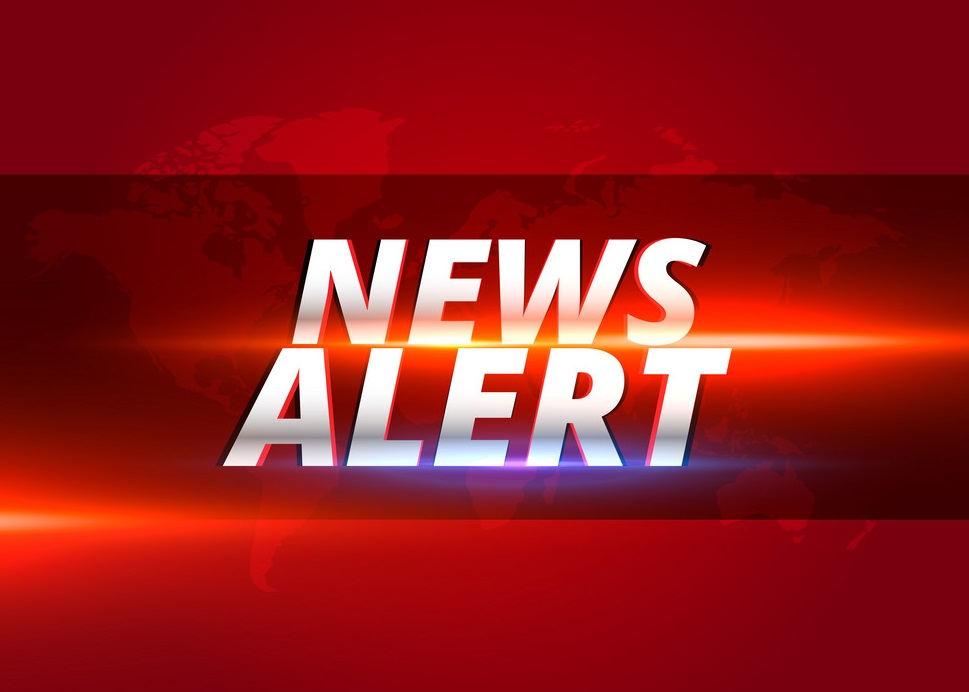Secretarul General Adjunct al NATO Mircea Geoana a transmis, in calitate de keynote speaker, un mesaj esential despre relatia SUA – Europa in conceptul #NATO2030 si impactul acesteia pentru 1 miliard de oameni din tarile membre.
Discursul integral aici : https://www.nato.int/cps/en/natohq/news_177637.htm
Hello Andrew, and thank you for having me to this new great event of Emerging
Europe. Warm regards from Brussels, from the Headquarters of NATO.
I looked through the list of guests that you have gathered for this great opportunity and I’ve seen also Liz Claman. Liz hello, virtual warm hugs from us. Thank you for having me and thank you for putting again on the forefront of our conversations the critical role that Central Eastern Europe, Southeast Europe do play in the overall architecture of a transatlantic community.
We are now, of course, all of us consumed by this pandemic and NATO is, like, always vigilant and making sure that a health crisis and economic downturn do not transform into a security crisis. And this is something that we do every single day, every single night, every single minute, here at NATO. Also there is a moment of hyper-acceleration of history. History compresses and, like always in difficult turning points in human history, there are challenges and opportunities, risks and immense unknowns. How to go about it? I would stress three big things.
First of all, we should never, but never, forget what really brought us to this place, as the political West, as free and democratic societies, as people that really love democracy and freedom. And I don’t think I have to speak too much about this topic of freedom and liberty and democracy for people in a region that I belong to. And we suffered the lack of democracy, the lack of freedom, the absence of human dignity. This is why I believe that the first thing we should do in these difficult moments is to come back to the roots, to the values, to the foundation that we have built over time.
This Alliance of ours, one billion people, 50 per cent of global GDP, 28 of the first 30 universities in the world, the largest number of Nobel Prize laureates, and also the largest number of patents and innovation in the world. We are a formidable force and have to stick together and harness our strengths and also look to our weaknesses, because this pandemic also reveals some structural weaknesses. This is why here at NATO, we have been building upon a body of expertise, which is, I would say, unique in the world, on resilience.
Five years ago, the NATO leaders decided and asked us, tasked us – the Alliance – to work on resilience baseline requirements from energy to infrastructure, from medical, civilian and military cooperation to natural disasters. We have updated this resilience criteria and we are now stronger. And I do know that countries and citizens in Central Eastern Europe, in emerging Europe, will all have something to contribute to this very important conversation.
Secondly, for the first time in half a millennia, the West, Europe or now United States, or the political West, as we call it, we are challenged by rivals and by nations that are competing for supremacy: economic supremacy, technological supremacy, and why not, political supremacy. And this is a fight that we have not been accustomed to wage. I also say that this competition also needs to bring cooperation and collaboration. We cannot run the world without global rules and without multilateral institutions.
But there is a competition and make no doubt that for the first time we are challenged. This is why we have to really regain our strength, keep the transatlantic ties strong. There is no way, for America alone or for Europe alone, there is no way for neither side of the Atlantic to be able to cope with this fantastic competition coming from China, from a resurgent Russia, from terrorist organisations, from non-state actors that do not wish us well. Rather than being together, we are two sides of the same coin. North America and Europe, we are two sides of the same coin. NATO and EU, we are two sides of the same coin. And even sometimes we don’t see eye to eye, sometimes it’s quite visible, it doesn’t mean that we are not part of the same family, a same family of nations that love democracy, love freedom and love human dignity.
And this leads me to the fundamental question of the period ahead, which is: what type of societal arrangement is better armed, prepared, for leading in such a turbulent time in the world? Is it the time of the political West coming to an end, is it relative decline? Or are we still having freshness and energy and vitality within ourselves? I would argue strongly, and I believe that this is something that many of us do believe strongly: there is no way in which a closed society can be more efficient than an open society; that an autocratic system can be more efficient, in the long term, than an open democratic system; that countries and nations and people that enjoy freedom could not be more productive and more innovative than people that live in closed societies and in places where some form of Big Brother is watching every move you make.
So, in a way, we are living in a time of fantastic challenges and fantastic opportunities. I know that in one of your panels you’ll be discussing about the opportunities for Central Eastern Europe, for emerging. Europe. Winston Churchill’s famous quote, “Never let a crisis go to waste” is as actual as ever.
I will say, in closing, something about our region, because it is our region, it is my region, and I care about it. And in a way, the fact that I’m the first person coming from our part of Europe occupying such an important job in NATO, the number two job in NATO, is also indicative for the fact that our region is becoming more influential, more mature and also able to play the game. I think there are opportunities for our region, because the number one conclusion from this pandemic is that the supply chains, which are today overstretched and sometimes insecure, will need to be shortened. That’s a chance for relocation, for onshoring on European soil, in our countries, some of the activities and jobs and investments and technologies that are today scattered around the globe.
We also have in our region a significant problem with demographics and decline of population, migration of our young people. This could be also a chance for a brain regain. It’s very nice to have many Romanians and many people from all over Europe, from the Baltics, from Poland, from everywhere, working in Silicon Valley. But I think we also need to breed talent here and also make sure that the unicorns and the innovation is also coming from our part of Europe.
I also believe that this is an important moment, speaking of our competitiveness, to continue the catching-up with developed Western Europe that we have started some decades ago, when our nations joined first NATO and then the EU. And I also hope that the countries that are not yet members of NATO or the EU, will continue, if they so desire, their race towards catching up with the lost historical time.
This is what Jens Stoltenberg, the Secretary General of NATO, has, in a very strong and powerful way, portrayed in his NATO 2030 vision: that this Alliance of ours, we need to stay strong militarily, that we have to be stronger politically and we have to be more global. This is why Jens Stoltenberg asked me to chair the innovation body in NATO. He asked me to pay a special attention to the partnerships that NATO has all over the world, including in Central, Eastern, South, and Western Balkans, and also to make sure that the NATO-EU relationship continues to develop constructively and in a very complementary way.
I believe there is a lot of opportunity for this part of Europe. And I cannot say how much the fact that many of our nations are part of NATO today, and also part of the EU today, have changed the destiny of our part of Europe. We have been always on the edge. We have been always an invitation for competition between great powers over history. We are now part of the united political West. And this is something that I think we should cherish, we should build upon, and making sure that many decades to come, our community of values and common interests will stay strong.
I wish you luck. Count me as your friend. And again, to you, Andrew, Liz, everybody else, warmest regards here from NATO Headquarters. See you soon and good luck.
Secretarul General al NATO, Jens Stoltenberg, a lansat joi un apel către Rusia de a nu ”se amesteca” în Belarus, unde are loc o mişcare inedită de contestare după alegerile prezidenţiale din 9 august, transmite AFP.
”Nimeni, nici Rusia, nu trebuie să se amestece acolo. Belarus este un stat suveran şi independent”, a subliniat Stoltenberg într-un interviu pentru ediţia online a cotidianului german Bild.
”Este foarte clar: noi respectăm integritatea teritorială a Belarusului”, a declarat secretarul general al Alianţei Nord-Atlantice, care a avut joi, la Berlin, o întrevedere cu cancelarul german Angela Merkel.
De asemenea, liderul de la Kremlin a spus că actuala criză din Belarus este ”o problemă a societăţii şi a poporului belaruse”, adăugând că, din punctul său de vedere, Rusia se comportă ”într-o manieră mult mai rezervată şi neutră decât multe alte ţări, atât europene cât şi americană”.
În ultimele 17 zile, zeci de mii de demonstranţi au ieşit pe străzile din Minsk şi din alte oraşe din Belarus pentru a protesta împotriva realegerii controversate a lui Lukaşenko (65 de ani) în funcţia de preşedinte la scrutinul prezidenţial din 9 august.
Opoziţia belarusă este convinsă că votul a fost fraudat, în timp ce liderul de la Minsk invocă rezultatele oficiale ale scrutinului, ce îi acordă peste 80% din sufragii, iar candidatei opoziţiei Svetlana Tihanovskaia, care s-a refugiat în Lituania, doar 10%.
Aleksandr Lukaşenko a acuzat NATO – din care fac parte şi Polonia, Lituania şi Letonia, ţări ce au frontieră cu Belarus – că îşi consolidează forţele în apropierea graniţei cu ţara lui.
Miercuri, Stoltenberg a respins ferm acuzaţiile Minskului, subliniind că orice încercare a Belarusului de a folosi Alianţa Nord-Atlantică drept ţap ispăşitor este ”greşită şi nejustificată”





